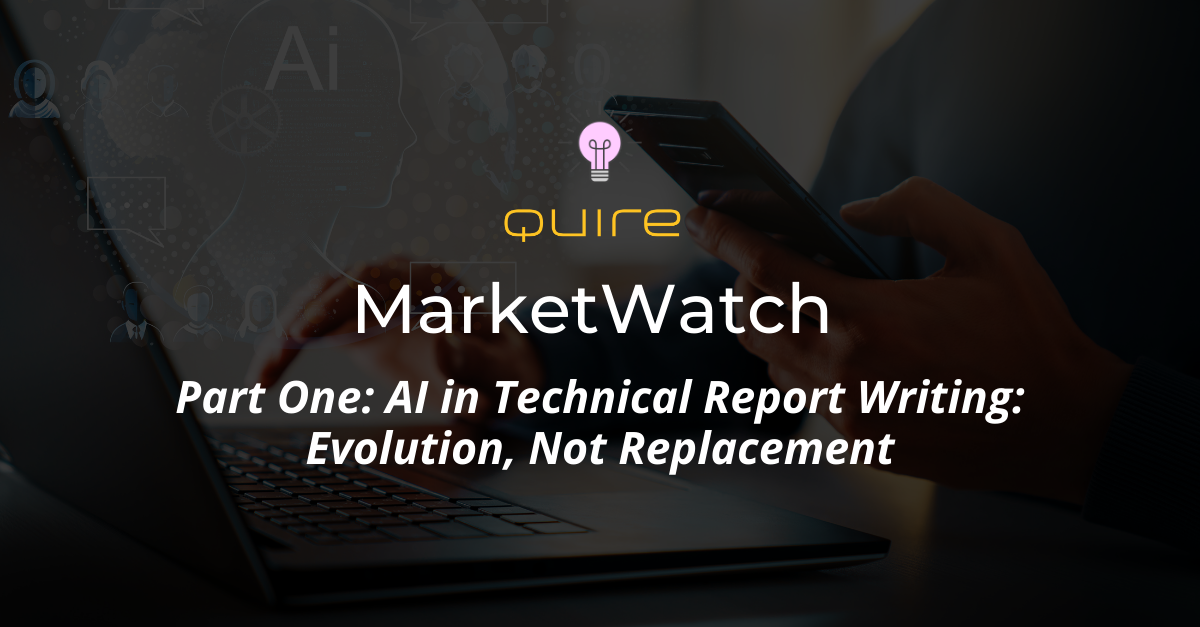For years, Quire has analyzed tens of thousands of Reports from dozens of market lines generated all around the world. As Quire works to provide productivity-enhancing solutions for Clients, we’re fully embedded in Technical Report Writing, enriching our understanding of the industry and our Clients’ workflows. We’ve created MarketWatch as a way to share industry trends and insightful takeaways with report-writing professionals both in and outside the Quire solution.
Our new MarketWatch series delves into the profound impact of Artificial Intelligence (AI) on technical report writing. If you've somehow missed the resounding buzz surrounding AI and groundbreaking releases like ChatGPT, it's time to emerge from under that metaphorical rock. AI has become a central force driving innovation across industries, and in this series, we will explore its transformative influence on the field of technical writing.
In the first article of this three-part series, we focus on the realm of Natural Language Processing (NLP) and Natural Language Generation (NLG), aspects of AI that deal with understanding and creating human-like text. These advancements are transforming various fields, including technical report writing.
At the heart of our discussion is ChatGPT, an AI model developed by OpenAI, designed to generate text that closely resembles human writing. This tool has begun to make significant waves across many industries, showing promise of disrupting the way businesses communicate and create content. Yet, it's important to note that, while powerful, this tool still requires careful handling for optimal results.
